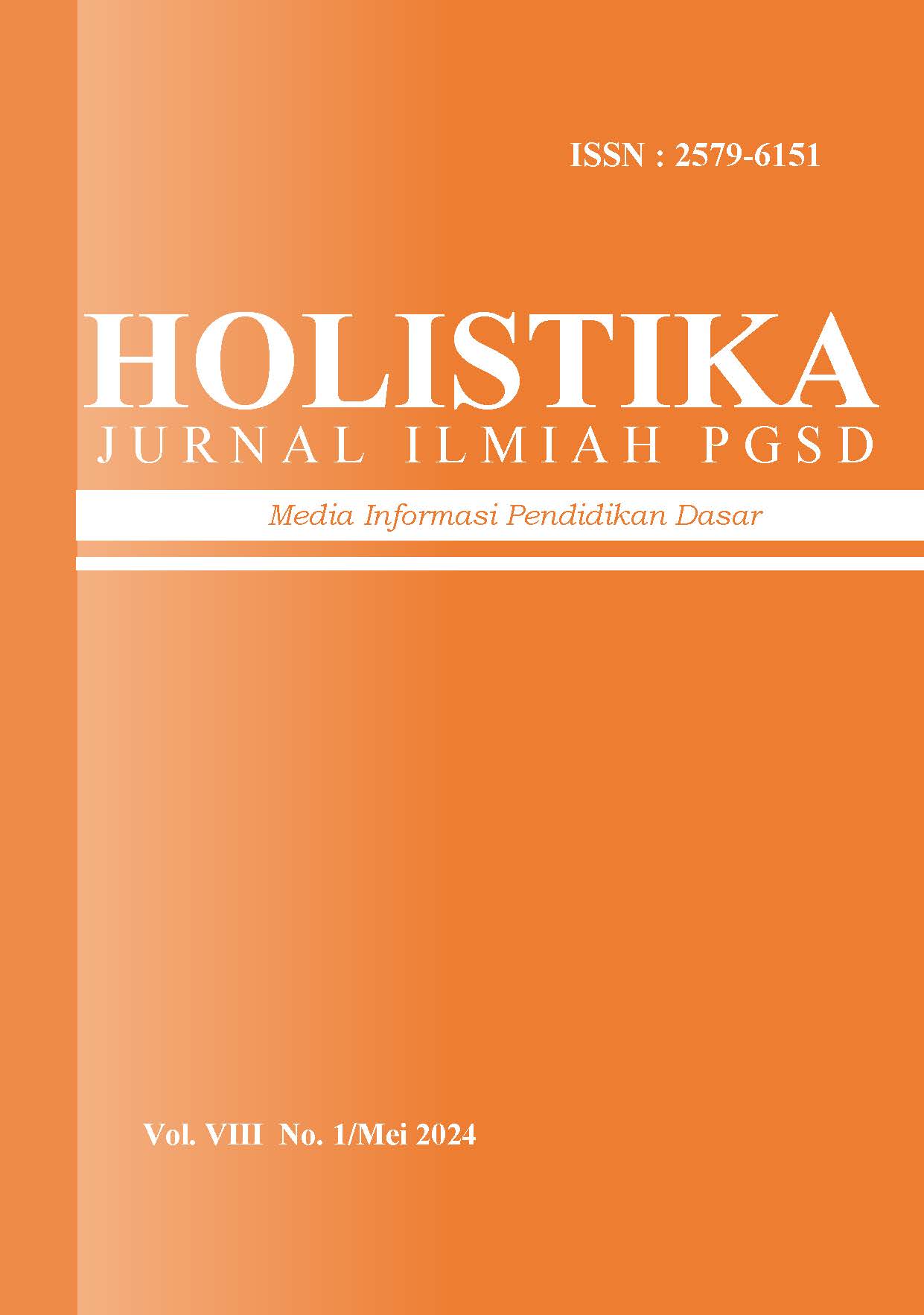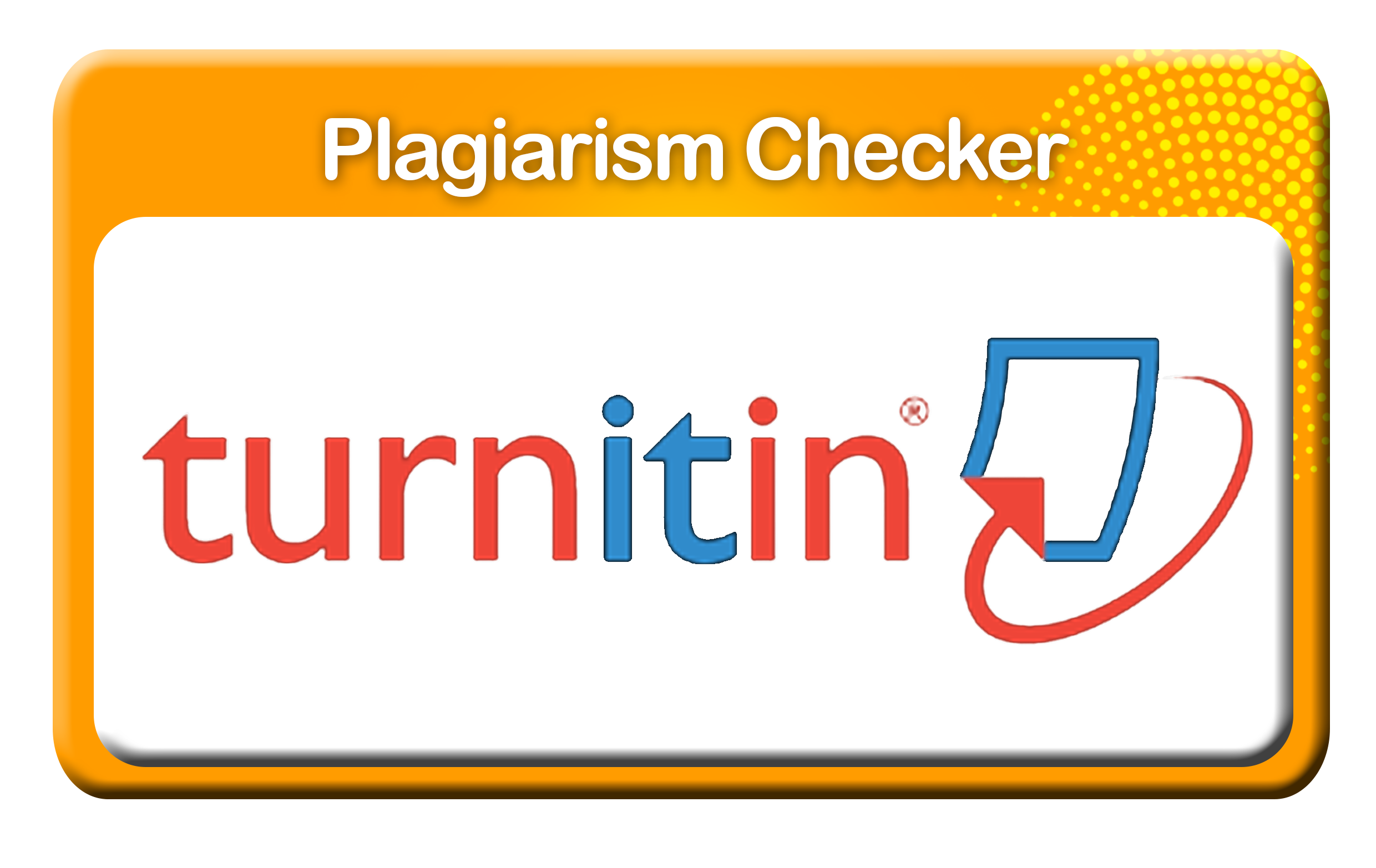ANALISIS PENERAPAN METODE YANBU’A DALAM PROGRAM TAHFIDZHUL QUR’AN DI SDUT BUMI KARTINI
DOI:
https://doi.org/10.24853/holistika.8.1.96-106Abstract
The Yanbu'a method is a method/thoriqoh (book) that teaches reading and writing and memorizing the Koran quickly, easily and precisely for children and adults. This type of research is qualitative research with the aim of describing in detail the process of implementing the yanbu'a method in the tahfidzul qur'an program at SDUT Bumi Kartini. Data collected through observation, interviews, surveys and documentation methods. The results of this research show 1. The use of the Yanbu'a method in the tahfidzhul Qur'an program at UT Bumi Kartini Elementary School. 2. Supporting and inhibiting factors in the tahfidzul Qur'an program at UT Bumi Kartini Elementary School, 3. What are the solutions to the obstacles to the Yanbu method? 'a at SDUT Bumi Kartini 4. What is the impact of implementing the Yanbu'a method on students at SDUT Bumi Kartini. In reality, the Tahfidzhul Qur'an program has a good influence on students, including students becoming a source of pride for their parents and children being more responsible with the task of adding and memorizing muroja'ah. Therefore, researchers want to provide insight into effective teaching methods in the tahfidzhul Qur'an program in elementary schools, which is an important part of religious and character education.Keywords: Yanbu’a Method, Tahfidzhul Qur’an, SDUT Bumi KartiniReferences
Andriyanti, L. S., Sholihah, H., & ... (2022). Implementasi Metode Yanbu’a dalam Pembelajaran Baca Tulis Al-Qur’an (BTQ) Di TPQ Sultan Fatah Demak. … Unissula (KIMU) Klaster., 271–277.
Biswan, A. T., & Widianto, H. T. (2019). Peran Beyond Budgeting Entry Scan Untuk Mengatasi Permasalahan Penganggaran Sektor Publik. Jurnal Akuntansi Multiparadigma, 10(2), 308–327. https://doi.org/10.18202/jamal.2019.08.10018
Fatah, A., & Hidayatullah, M. (2021). Penerapan Metode Yanbu’a dalam Meningkatkan Kefasihan Membaca Al Qur’an di Pondok Pesantren Darul Rachman Kudus. Jurnal Penelitian, 15(1), 169–206. https://doi.org/10.21043/jp.v15i1.10749
Fathor Rosi Faliyandra, F. (2021). URGENSI PEMBELAJARAN AL-QUR’AN BAGI SISWA MADRASAH IBTIDAIYAH. Jurnal Auladuna, 3(2), 37–49. https://doi.org/https://doi.org/10.36835/au.v3i2.579
Hidayah, S., & Zumrotun, E. (2023). Penggunaan Metode Qiro’ati Dalam Pembelajaran Membaca Al-Quran Di Sekolah Dasar. Attadrib: Jurnal Pendidikan Guru Madrasah Ibtidaiyah, 6(2), 353–364. https://doi.org/10.54069/attadrib.v6i2.601
Hidayat, H., & Gunadi, G. (2022). Pelaksanaan Program Tahfidz Al-Qur’an di Madrasah Ibtidaiyah Al-Awwal Palembang. Quality, 10(1), 47–60. https://doi.org/10.21043/quality.v10i1.13803
Indana, N. (2023). Penerapan Metode Yanbu’a dalam peningkatan Kefashihan Bacaan Al-Qur’an. ILJ: Islamic Learning Journal (Jurnal Pendidikan Islam), 1(2), 421–441. https://doi.org/https://doi.org/10.54437/iljjislamiclearningjournal.v1i2.897
Kinesti, R. D. A., Arum, D. N. S., Lutfin, W. F., & Nida, F. K. (2023). Analisis Faktor Penghambat dalam Pelaksanaan Program Tahfidz di MI Terpadu Tahfidzul Qur’an Al-Ma’shum (MITTQUM) Surakarta. Yasin, 3(4), 597–612. https://doi.org/10.58578/yasin.v3i4.1269
Muhammad Rijal Fadli. (2021). Memahami desain metode penelitian kualitatif. Humanika, Kajian Ilmiah Mata Kuliah Umum, 21(1), 33–54. https://doi.org/10.21831/hum.v21i1.
Muhammad Shobirin. (2018). Pembelajaran Tahfidz Alqur’an Dalam Penanaman Karakter Islami. Quality, 6(1), 16–30. https://doi.org/http://dx.doi.org/10.21043/quality.v6i1.5966
Pemerintah Indonesia. 2003. Undang-Undang Republik Indonesia Nomor 20 Tahun 2003 Tentang Sistem Pendidikan Nasional. Pusat Data dan Informasi Pendidikan, Balitbang-Depdiknas.
Qowiyeh, R. A., & Listrianti, F. (2024). Penerapan Metode Yanbu’a dalam Meningkatkan Penguasaan Membaca Al-Qur’an di Madrasah Ibtidaiyah. Jurnal Educatio, 10(1), 163–172. https://doi.org/10.31949/educatio.v10i1.6378
Rahmawati, R. D., & Aisyah. (2021). Penerapan Metode Yanbu ’a pada Program Tahfidz Al Qur ’an Di Pondok Pesantren Hasbullah Tambak Beras Jombang. Jurnal Education and Development, 9(4), 439–442.
Rofiatun Nisa’, & Eli Fatmawati. (2020). Kerjasama Orang Tua dan Guru dalam Meningkatkan Motivasi Belajar Peserta Didik. Ibtida’, 1(2), 135–150. https://doi.org/10.37850/ibtida.v1i2.147
Rofiq, M., & Basyid, M. A. (2020). Implementasi Metode Yanbu’a untuk Meningkatkan Hasil Belajar Baca Al-Qur’an di MI Baitul Huda Kota Semarang Tahun Ajaran 2019/2020. Quality, 8(2), 207. https://doi.org/10.21043/quality.v8i2.7550
Saputri, A., Fadhilaturrahmi, & Fauziddin, M. (2022). Peran Dukungan Orang Tua Terhadap Motivasi Belajar Siswa Sekolah Dasar. MIMBAR PGSD Undiksha, 10(3), 455–462. https://doi.org/10.23887/jjpgsd.v10i3.51036
Sugiyono. (2018). Penelitian kuantitatif kualitatif dan R&D. Alfabeta.
Syarifah, S., Isroani, F., Azizah, N., Huwaida, J., & Nada, N. N. (2022). Implementasi Metode Yanbu’a untuk Meningkatkan Kemampuan Siswa Membaca dan Menghafal Al-Qur’an. Fitrah: Journal of Islamic Education, 3(2), 144–159. https://doi.org/10.53802/fitrah.v3i2.158
Winara, D., & Suparman, I. (2021). Penerapan Budaya Muraja’ah Al Qur’an di SD Islam Al- Azhar Kota Cirebon. Standarisasi Pendidikan Sekolah Dasar Menuju Era Human Society 5.0, 131–136.
Zuchri Abdussamad. (2021). Metode Penelitian Kualititatif (P. Rapanna (ed.)). syakir Media Press.
Downloads
Published
How to Cite
Issue
Section
License
Authors who publish with this journal agree to the following terms:
- Authors retain copyright and grant the journal right of first publication with the work simultaneously licensed under a Creative Commons Attribution License that allows others to share the work with an acknowledgement of the work's authorship and initial publication in this journal.
- Authors are able to enter into separate, additional contractual arrangements for the non-exclusive distribution of the journal's published version of the work (e.g., post it to an institutional repository or publish it in a book), with an acknowledgement of its initial publication in this journal.
- Authors are permitted and encouraged to post their work online (e.g., in institutional repositories or on their website) prior to and during the submission process, as it can lead to productive exchanges, as well as earlier and greater citation of published work (See The Effect of Open Access).


















